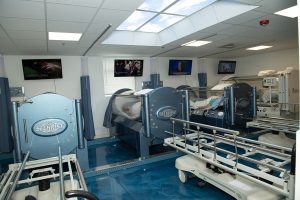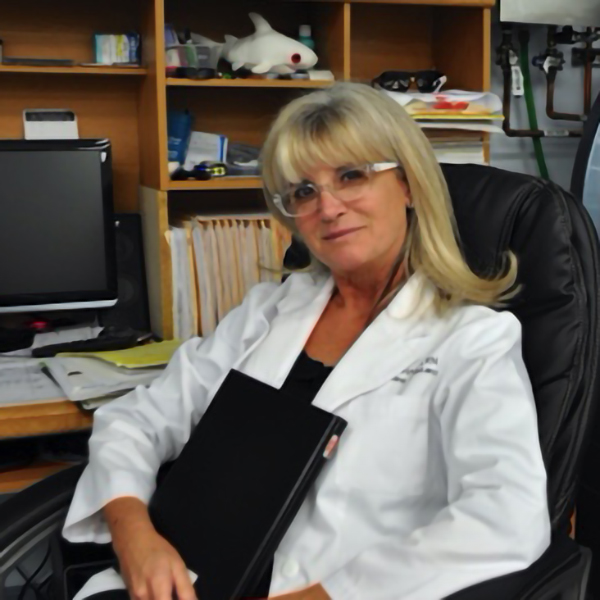Mild Cognitive Impairment (MCI) and Dementia
August 10, 2023Drowning and Anoxic Brain Injury
August 10, 2023
Multiple Sclerosis
Multiple Sclerosis, or MS, is a degenerative disease that attacks the body’s nervous system. The nervous system includes the brain, spinal cord, and various nerves that branch from them; MS attacks the brain and spinal cord. Nerves have protective sheaths of tissue called myelin. In patients diagnosed with MS, the myelin sheaths are destroyed, and the nerves become exposed and damaged. These sites of nerve damage are wounds, internal wounds, no different from wounds on the outside of our bodies. All wounds proceed through healing stages that result in some degree of sclerosis or scarring. Multiple Sclerosis (Scars). These scars or wounds can lead to a variety of symptoms depending on the area that is damaged and the severity of the degeneration.
There is no identifiable cause of Multiple Sclerosis, yet millions of people around the world have been diagnosed. No two people have the same experience with MS, but the progression of symptoms can be either a slow progressive neurological decline (Chronic Progressive MS) or periods of severe decline followed by months and even years of remission (Relapsing/Remitting MS. These periods of increased symptoms in Relapsing/Remitting MS are also known as flare-ups or relapses. MS relapses can last from a few days up to several months. These can be difficult to treat, and flare-ups can often result in permanent symptoms over time.
What are the effects?
The symptoms of MS vary greatly, but most often patients report difficulty walking, vision impairment, fatigue, numbness and tingling, weakness, bladder dysfunction, and pain. Secondary dysfunction can also arise as a result of these symptoms. The impact of Multiple Sclerosis on patients and their families is significant, and many people find themselves with long-term disability and difficulty managing symptoms.
Benefits from HBOT
Hyperbaric oxygen therapy is known to be a treatment of wounds in any location and of any duration. Hyperbaric oxygen therapy treats the wounds of MS. Hyperbaric oxygen treatment of MS has been proven to reduce symptoms in patients, stabilize their function long-term, and even increase overall health and wellness.
The benefits of HBOT for people with multiple sclerosis have been particularly encouraging in mild cases, but those with severe symptoms have also seen positive results. Many patients experience increased mobility and energy along with reduced urinary incontinence, involuntary movements, and fatigue. Over 60 centers in the United Kingdom have been successfully treating MS patients for decades.

Harch Hyperbarics Chamber Room
Research on HBOT of multiple sclerosis is limited, but the most rigorous study on HBOT in relapsing/remitting MS, a randomized controlled trial by Dr. Fischer, was published in 1983 in one of the world’s finest medical journals. The study demonstrated significant improvement in the MS patients treated with HBOT. In addition, a 14 year-long study in England showed stabilization and even improvement of MS patients treated intermittently over these 14 years.
The experience in our clinic has duplicated the published results in these studies. Based on the results of the 14-year study It is apparent that hyperbaric oxygen treatment for people with MS is best used in prevention of symptoms. Long-term benefits of HBOT for multiple sclerosis are very promising and can slow the spread of neurological damage as well as reduction of physical symptoms.
More and more patients are beginning to experience the long-term effects of hyperbaric oxygen treatments and therapy as it becomes more accessible. Stabilizing patients and preventing the progression of symptoms is an exciting and hopeful step in treatments for Multiple Sclerosis.
Why Come to Dr. Harch for Hyperbaric Oxygen Treatment of Multiple Sclerosis?
Dr. Harch has been diligently treating and researching the life and quality-of-life saving effects of HBOT on medical conditions, and in particular neurological conditions, for over 35 years. One of these conditions is MS and one of the strongest endorsements of the effectiveness of HBOT in MS is from Dr. Harch’s wife, Juliette. Juliette has had laboratory and imaging-proven chronic progressive MS confirmed by three neurologists. Since 2000 she has been receiving intermittent HBOT similar to the 14-year English study. Over the past 21 years she has had no neurological deterioration and to this day at 65 years old maintains an active full-time work schedule without physical limitations, participates in sports, and manages Dr. Harch’s practice.
Over the past four decades Dr. Harch has confirmed that HBOT is a dual-component drug composed of increased pressure and increased oxygen whose effects are dependent on the dose of HBOT delivered. Starting with clinical studies in the 1990s he has developed dosing techniques that he has successfully applied to over 90 neurological conditions, including MS. He is the world-renowned HBOT expert that people all over the world travel to see for the best treatment in the world.
HBOT for MS Symptom Relief on Rural Route Radio with Trent Loos
February 25,2022
Juliette Harch talks about her struggle with Multiple Sclerosis and briefly discusses how her husband Dr. Paul Harch “offers hope to the hopeless” and succeed time and time again. with pharmaceutical grade oxygen through HBOT.
Further Research
https://www.ncbi.nlm.nih.gov/pubmed/26709672
https://www.nejm.org/doi/full/10.1056/NEJM198301273080402 (The famous Fischer study, the most rigorous of all studies performed on HBOT in MS. Strongly positive results).
P.B. James, Oxygen Treatment for Multiple Sclerosis Patients, Chapter 22, Textbook of Hyperbaric Medicine, Sixth Edition, Editor: K.K. Jain, Springer Publisher, Cham, Switzerland, 2017. (can purchase individual chapters at: https://www.springer.com/us/book/9783319471389#
HBO-Therapy-MS-Patients:
https://hyperbaricoxygentherapy.com/PDFs/Studies/Autoimmune-And-Systemic-Disorders/Multiple-Sclerosis/HBO-Therapy-MS-Patients.pdf
PDF Document · 71 KB:
https://hyperbaricoxygentherapy.com/PDFs/Studies/Autoimmune-And-Systemic-Disorders/Multiple-Sclerosis/HBO-Therapy-MS-Patients.pdf
*
Fischer BH, Marks M, Reich T. (1983) Hyperbaric-oxygen treatment of multiple sclerosis: A randomized, placebo-controlled, double-blind study. N Engl J Med; 308:181-6.
*
Barnes MP, Bates D, Cartlidge NEF et al (1985) Hyperbaric oxygen and multiple sclerosis: short term results of a placebo-controlled, double-blind trial. Lancet ii:297-300.
*
Barnes MP, Bates D, Cartlidge NEF et al (1987) Hyperbaric oxygen and multiple sclerosis: final results of a placebo-controlled, double-blind study. J Neurol Neurosurg Psychiatry 50: 1402-1406.
*
Wiles CM, Clarke CRA, Irwin HP et al (1986) Hyperbaric oxygen in multiple sclerosis: a double blind study. Br Med J 292:367-371
*
Oriani G, Barbieri S, Pirovano C, Mariani C (1987) Hyperbaric oxygen in chronic progressive multiple sclerosis : a placebo-controlled, double-blind, randomised study with evoked potentials evaluation. In: Oriani G (ed) Proceedings of the thirteenth annual meeting of the European Undersea Biomedical Society. Palermo: European Undersea Biomedical Society: 196-203.
*
Pallotta R, Longobardi G, Fabbrocini G (1986) Experience in protracted follow-up on a group of multiple sclerosis patients periodically treated with hyperbaric oxygen therapy. In Baixe J-H (ed). Symposium sur le traitment de la sclerose multiple par l’oxygene hyperbare. Paris.
*
Perrins DJD, James PB.(1994) The treatment of Multiple Sclerosis with prolonged courses of hyperbaric oxygen. Proceedings of the 1st European Consensus Conference on Hyperbaric Medicine. Lille : 245-263.
*
Hyperbaric-Oxygen Treatment of Multiple Sclerosis:
https://www.nejm.org/doi/full/10.1056/NEJM198301273080402
nejm.org:
https://www.nejm.org/doi/full/10.1056/NEJM198301273080402


